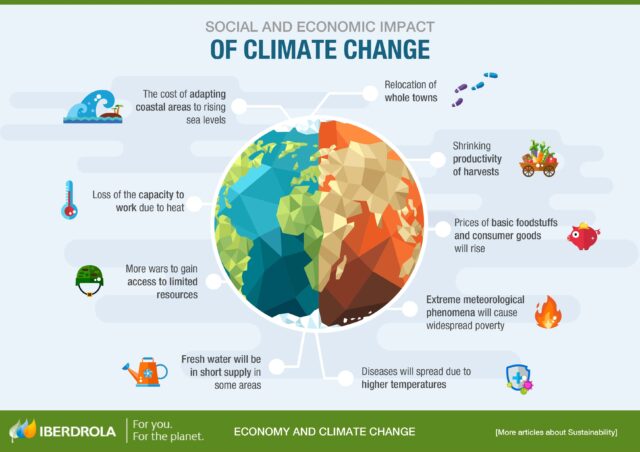Climate Change Policies and Their Global Impact
Climate change policies have been implemented worldwide with the aim of mitigating the adverse effects of global warming. These policies, ranging from international agreements to local initiatives, have had significant global impacts, affecting environmental, economic, and social spheres. The complexities and outcomes of these policies must be examined to understand their efficacy and long-term implications.
International Agreements and Frameworks
The foundation of global climate change policies has been laid by international agreements. The Kyoto Protocol, adopted in 1997, was one of the first major agreements that committed industrialized countries to reduce greenhouse gas emissions. It was followed by the Paris Agreement in 2015, which has been considered more inclusive, as it involved commitments from both developed and developing countries. The goal of the Paris Agreement has been to limit global warming to well below 2 degrees Celsius above pre-industrial levels, with efforts to limit the increase to 1.5 degrees Celsius.
Under these agreements, countries have been required to submit nationally determined contributions (NDCs), which outline their plans to reduce emissions and adapt to climate change. These international frameworks have been crucial in setting global targets and fostering cooperation among nations. However, challenges have been faced in terms of compliance and enforcement, with some countries failing to meet their targets due to economic and political constraints.
National Policies and Strategies
At the national level, various policies have been enacted to address climate change. Carbon pricing mechanisms, such as carbon taxes and cap-and-trade systems, have been widely implemented. These mechanisms have been designed to put a price on carbon emissions, thereby incentivizing businesses and individuals to reduce their carbon footprint. For example, Sweden’s carbon tax, introduced in 1991, has been credited with significantly reducing emissions while maintaining economic growth.
Renewable energy policies have also been adopted by many countries to transition from fossil fuels to cleaner energy sources. Subsidies and incentives for solar, wind, and other renewable energy projects have been provided to promote their development and deployment. Germany’s Energiewende, or energy transition, policy has been notable for its ambitious targets and substantial investments in renewable energy, resulting in a significant increase in the share of renewables in the country’s energy mix.
Economic Impacts
The economic impacts of climate change policies have been multifaceted. On one hand, costs have been incurred by industries and consumers due to increased energy prices and investments in new technologies. On the other hand, economic opportunities have been created through the development of green technologies and industries. The renewable energy sector has seen significant growth, creating jobs and driving innovation.
In some regions, traditional industries, such as coal mining and oil extraction, have faced decline due to stringent environmental regulations. This has led to economic disruptions and job losses, necessitating policies for just transition to support affected workers and communities. The reallocation of resources towards sustainable industries has been encouraged to foster long-term economic resilience.
Social and Environmental Impacts
Socially, climate change policies have had varying impacts. Vulnerable communities, particularly in developing countries, have been disproportionately affected by the adverse effects of climate change, such as extreme weather events and food insecurity. Adaptation measures, such as building resilient infrastructure and promoting sustainable agriculture, have been implemented to mitigate these impacts. However, the effectiveness of these measures has often been limited by lack of funding and institutional capacity.
Environmental impacts of climate change policies have been largely positive, with significant reductions in greenhouse gas emissions reported by countries that have implemented stringent measures. Improved air quality and reduced deforestation rates have been observed in many regions. Biodiversity conservation efforts have also been bolstered by climate policies, as preserving ecosystems has been recognized as crucial for climate resilience.
Global Cooperation and Challenges
The global nature of climate change has necessitated cooperation among nations. Climate finance has been a critical aspect, with developed countries pledging to provide financial support to developing countries for mitigation and adaptation efforts. The Green Climate Fund, established under the UNFCCC, has been a key mechanism for this purpose. However, issues related to the adequacy, predictability, and accessibility of climate finance have persisted.
Technological transfer and capacity building have been emphasized to ensure that developing countries have access to the necessary tools and knowledge to combat climate change. Partnerships between governments, private sector, and civil society have been encouraged to leverage resources and expertise. Nevertheless, disparities in technological capabilities and institutional frameworks have posed challenges to effective implementation.
Future Directions and Conclusion
Looking forward, the success of climate change policies will depend on several factors. Enhanced international cooperation, stronger enforcement mechanisms, and increased financial commitments will be essential. Innovations in technology and sustainable practices must be continuously promoted. Public awareness and engagement will also play a critical role in driving behavioral changes and garnering support for climate actions.
In conclusion, climate change policies have had profound global impacts, shaping environmental, economic, and social landscapes. While significant progress has been made, ongoing efforts and collective action will be required to address the multifaceted challenges of climate change and achieve a sustainable future for all.










